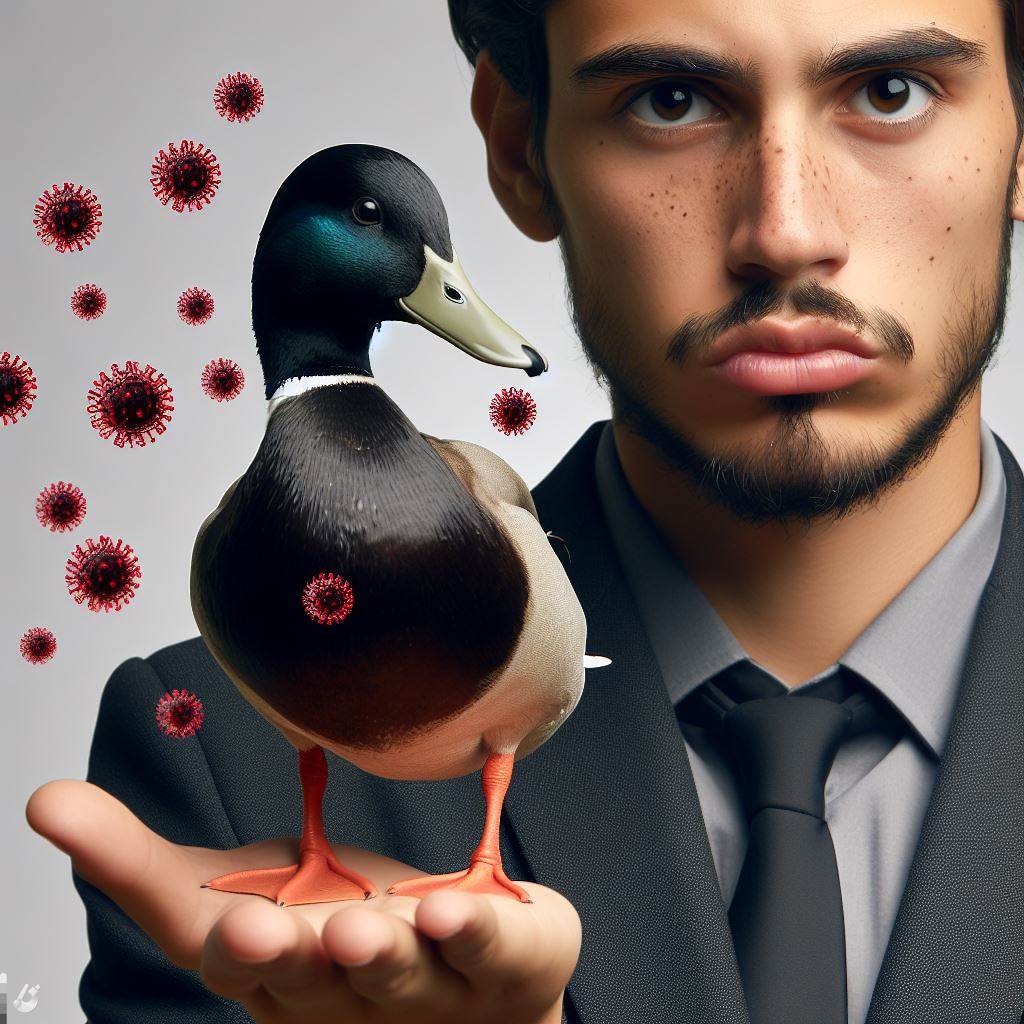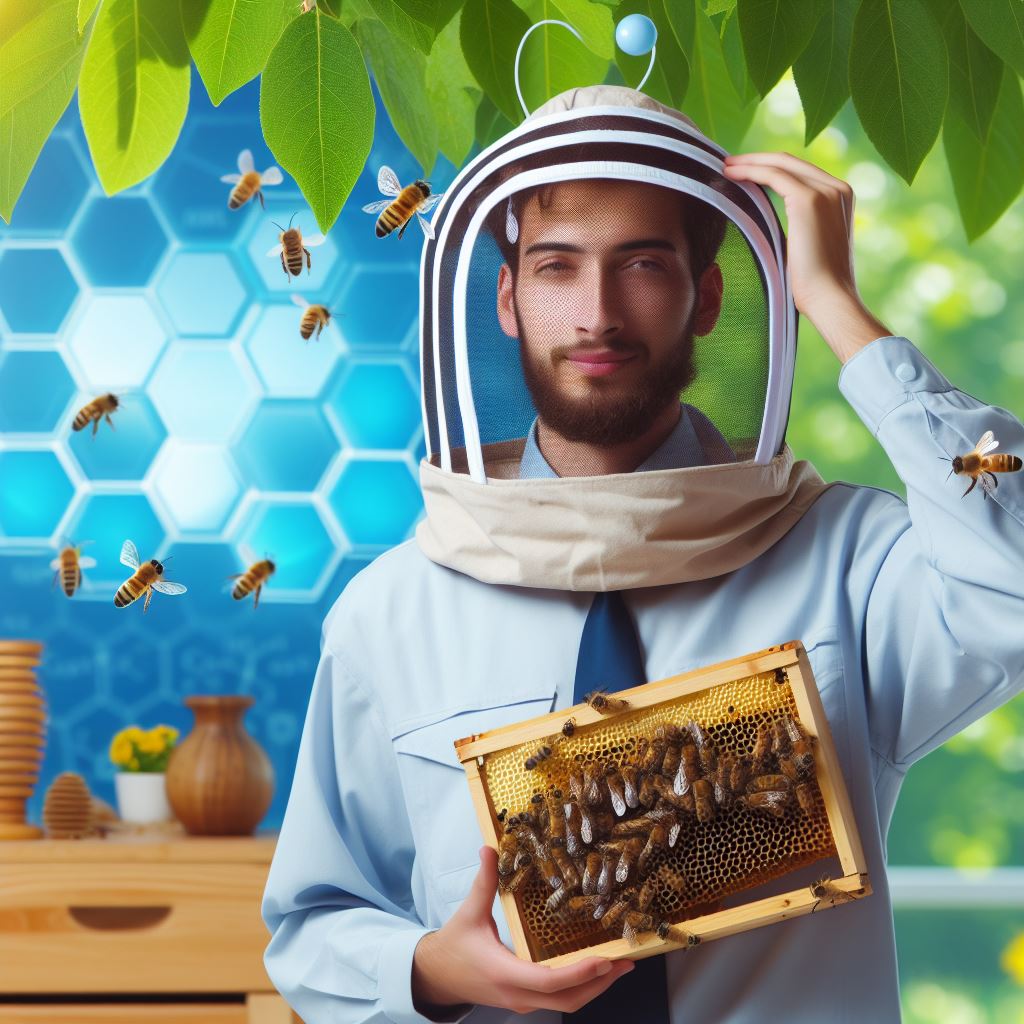Introduction
In duck farming, proper health management and disease control play a vital role.
These practices help ensure the overall well-being and productivity of the duck population.
Importance of Duck Health Management and Disease Control in Farming
Maintaining good health is crucial to maximize the growth and profitability of duck farming.
An unhealthy flock can lead to decreased egg production, reduced growth, and increased mortality rates.
Implementing effective health management and disease control measures can prevent these issues and promote a thriving duck farm.
Overview of the Blog Post’s Focus on Key Aspects
This blog post will highlight the key aspects related to duck health management and disease control.
We will discuss preventive measures, such as vaccination and biosecurity protocols, that can safeguard the ducks from diseases.
Additionally, we will explore common diseases affecting ducks and strategies to diagnose and treat them promptly.
Furthermore, the importance of maintaining a clean and hygienic environment to prevent disease transmission will be emphasized.
Nutritional aspects, including proper feeding and water management, will also be covered as they play a significant role in boosting the ducks’ immune system.
Therefore, this blog post aims to provide valuable insights into the significance of duck health management and disease control in farming.
By implementing sound practices and preventive measures, duck farmers can ensure the well-being and success of their flock.
Common Duck Health Issues
Ducks, like any other living creature, are susceptible to various health issues.
It is essential for duck owners to be aware of common diseases and health problems that can affect their flock to take timely preventive measures.
Common Diseases and Health Problems Affecting Ducks
- Avian Influenza: This viral infection affects the respiratory system of ducks, causing severe illness and high mortality rates.
- Botulism: Ducks can contract botulism from ingesting toxins produced by bacteria found in stagnant water, leading to paralysis and death.
- Duck Viral Enteritis: Also known as “duck plague,” this highly contagious disease affects the digestive system and can cause massive fatalities within a flock.
- Parasitic Infestations: External parasites such as mites and lice can cause skin irritations and feather loss in ducks.
- Duck Viral Hepatitis: A viral infection that primarily affects young ducklings, causing liver damage and high mortality rates.
- Duck Leukosis: This viral disease affects the immune system of ducks, increasing their susceptibility to other infections and leading to decreased egg production.
Symptoms, Diagnosis, and Potential Impact on Duck Populations
Recognizing the symptoms of these diseases is crucial for early diagnosis and prompt treatment. Common symptoms include:
Transform Your Agribusiness
Unlock your farm's potential with expert advice tailored to your needs. Get actionable steps that drive real results.
Get Started- Depression and lethargy
- Decreased appetite and weight loss
- Respiratory distress
- Diarrhea
- Abnormal feather appearance
Upon observing these symptoms, it is advisable to consult a veterinarian for accurate diagnosis and appropriate treatment.
If left untreated, these diseases can have a devastating impact on duck populations, including:
- Significant mortality rates, leading to population decline
- Reduced egg production
- Decreased fertility
- Increased susceptibility to secondary infections
Prevention Measures and Best Practices to Minimize Risks
- Vaccination: Implement a vaccination program recommended by a veterinarian to protect ducks against common viral diseases.
- Biosecurity: Proper biosecurity measures, including controlling visitor access, disinfecting equipment, and preventing contact with wild waterfowl, can prevent disease transmission.
- Clean Water and Hygiene: Provide clean and fresh water to ducks, ensuring proper sanitation of water sources to prevent waterborne diseases.
- Nutritional Balance: Offer a well-balanced, quality diet to ducks to boost their immune system and overall health.
- Regular Monitoring: Conduct regular health checks, observe flock behavior, and promptly isolate any sick ducks to prevent the spread of diseases.
- Pest Control: Implement effective pest control measures to prevent infestations by external parasites that can weaken ducks’ health.
By following these prevention measures and best practices, duck owners can significantly minimize the risks of common health issues and ensure the well-being of their flocks.
Taking proactive measures and seeking professional advice is the key to maintaining a healthy duck population.
Read: Turkey Health: Preventing Flock Diseases
Disease Control Measures
In order to maintain the health of ducks and prevent the spread of diseases, there are several important measures that need to be implemented:
Biosecurity protocols to prevent disease introduction and spread
Implementing strict biosecurity protocols is crucial for preventing the introduction and spread of diseases among ducks.
This includes:
- Restricting access to the farm premises to authorized personnel only
- Regularly monitoring and controlling the movement of animals, vehicles, and equipment
- Quarantining new animals before introducing them to the flock
- Ensuring proper cleaning and disinfection of equipment and facilities
- Implementing rodent and pest control measures
Proper sanitation practices for maintaining clean environments
Maintaining clean environments is essential for minimizing the risk of disease outbreaks.
Here are some key sanitation practices:
- Regularly cleaning and disinfecting water and feed containers
- Removing excess manure and bedding materials from the duck housing
- Properly disposing of dead or sick ducks to prevent contamination
- Providing adequate ventilation to minimize moisture and ammonia levels
- Maintaining a balanced diet for the ducks to support their immune system
Quarantine procedures for sick ducks or new additions to the flock
When sick ducks are identified or new ducks are added to the flock, quarantine procedures should be followed:
- Isolate sick or injured ducks from the rest of the flock to prevent further spread of the disease
- Ensure proper care and treatment under the supervision of a veterinarian
- Monitor the health status of the quarantined ducks regularly and provide necessary support
- Only reintroduce them to the flock when they are fully recovered and deemed healthy
Veterinary care and regular health check-ups for early detection
Regular veterinary care and health check-ups are essential for early detection and treatment of diseases:
- Engage a qualified veterinarian to provide routine check-ups and vaccinations
- Monitor the overall health of the ducks, including their behavior, appetite, and egg production
- Conduct regular testing for common diseases to identify any potential outbreaks
- Administer appropriate medication and treatments as recommended by the veterinarian
- Implement a vaccination program to protect against prevalent diseases
By strictly following these disease control measures, duck farmers can effectively manage the health of their flock, minimize disease outbreaks, and ensure the overall well-being of their ducks.
Read: Deer Farming: Managing Health & Disease

Nutrition and Immune System Support
Maintaining duck health is crucial for successful duck farming.
One important aspect of this is providing proper nutrition.
Proper nutrition plays a vital role in maintaining duck health.
A balanced diet is necessary for ducks to develop a strong immune system.
Essential nutrients are needed for a strong immune system in ducks.
These include proteins, carbohydrates, fats, vitamins, and minerals.
To ensure optimal health, suggested diets should meet the nutritional needs of ducks.
This includes providing a mix of grains, greens, and protein sources.
Feeding guidelines should be followed to ensure ducks receive the necessary nutrients.
Feeding times and amounts should be consistent and appropriate for the age of the ducks.
Showcase Your Farming Business
Publish your professional farming services profile on our blog for a one-time fee of $200 and reach a dedicated audience of farmers and agribusiness owners.
Publish Your ProfileSupplements or additives that enhance immune response
Supplements or additives can be used to enhance the immune response of ducks.
These may include probiotics, prebiotics, and herbal remedies.
Probiotics can help maintain a healthy gut microbiome and support the immune system.
Prebiotics help promote the growth of beneficial bacteria in the gut.
Herbal remedies, such as garlic and oregano, are believed to have immune-boosting properties in ducks.
Including these in the diet can support overall duck health.
It is important to note that while supplements can be beneficial, they should not replace a balanced diet.
Regular veterinary check-ups are essential to monitor duck health and ensure proper nutrition and supplementation.
Most importantly, proper nutrition is vital for maintaining duck health and enhancing their immune system.
Suggested diets and feeding guidelines should be followed, and supplements can be used to support the immune response.
Regular veterinary check-ups are crucial for overall duck health management.
Read: Innovative Poultry Housing Solutions in 2024
Uncover the Details: Winter Care for Sheep and Goats
Vaccination Programs for Duck Health Management & Disease Control
In order to maintain the health and well-being of ducks, vaccination plays a crucial role in preventing and controlling common diseases.
Vaccines are an effective measure to protect against these diseases, and it is important to be aware of the commonly recommended vaccines for ducks.
The Importance of Vaccination in Preventing Common Diseases
Vaccination is a proactive approach to safeguarding ducks from common diseases that can have detrimental effects on their health.
By stimulating the duck’s immune system, vaccines help in developing specific antibodies to combat specific pathogens.
Common diseases such as Avian Influenza, Newcastle Disease, and Duck Viral Enteritis can be effectively prevented through vaccination, reducing the risk of outbreaks and minimizing mortality rates.
Overview of Commonly Recommended Vaccines for Ducks
There are several vaccines that are commonly recommended for ducks, including:
- Avian Influenza Vaccine: This vaccine is essential in protecting ducks from the highly contagious Avian Influenza virus.
- Newcastle Disease Vaccine: Newcastle Disease can be devastating for ducks. Vaccination against this disease is vital for their overall health.
- Duck Viral Enteritis Vaccine: Also known as Duck Plague, this vaccine is crucial in preventing severe illness and mortality in ducks.
Vaccination Schedules and Administration Techniques
Developing an appropriate vaccination schedule is essential for effective disease prevention in ducks.
The timing and dosage of each vaccine can vary depending on the specific diseases prevalent in the region and the age of the ducks.
Moreover, proper administration techniques are critical for the vaccine to be effective.
Vaccines can be administered through subcutaneous injections or drinking water, and it is important to follow the manufacturer’s instructions for each vaccine.
Consulting with a Veterinarian for Personalized Vaccination Plans
Each duck farm or individual duck owner may have unique circumstances and requirements.
Therefore, it is advisable to consult with a veterinarian to develop personalized vaccination plans.
A veterinarian can assess the specific disease risks prevalent in the area and tailor a vaccination program to suit the individual needs of the ducks.
They can provide guidance on the appropriate vaccines, timing, and administration techniques to ensure the best possible protection against diseases.
In essence, vaccination is of paramount importance in the health management and disease control of ducks.
By following recommended vaccination programs, duck owners can protect their flock from common diseases, ensuring their well-being and productivity.
Read: Optimal Nutrition for Chickens & Turkeys
Monitoring and Early Detection
Monitoring and early detection are crucial aspects of duck health management and disease control.
By regularly observing and assessing the behavior, appearance, and droppings of ducks, it becomes possible to identify any signs of illness or discomfort early on.
This proactive approach is vital to ensure the health and well-being of the duck flock.
Regular monitoring of duck behavior, appearance, and droppings
Regular monitoring of duck behavior, appearance, and droppings allows farmers or duck owners to establish a baseline for what is normal.
By being familiar with the characteristics of healthy ducks, it becomes easier to recognize any deviations that could indicate a problem.
Changes in behavior, such as increased aggression or decreased activity levels, should be noted and investigated further.
In addition to monitoring behavior, the appearance of ducks is also indicative of their health status.
A healthy duck should have clear and bright eyes, a clean and vibrant plumage, and an alert and active demeanor.
Any signs of dullness, eye discharge, or rough feathers should raise concerns and prompt further investigation.
Duck droppings can provide valuable insights into their health condition.
Showcase Your Farming Business
Publish your professional farming services profile on our blog for a one-time fee of $200 and reach a dedicated audience of farmers and agribusiness owners.
Publish Your ProfileIt is important to know what normal droppings look like in order to identify any abnormalities.
Healthy duck droppings typically have a firm consistency, a dark brown color, and a distinct odor.
Changes in color, consistency, or the presence of mucus or blood should be treated as potential warning signs.
Identifying early signs of illness or discomfort
Recognizing early signs of illness or discomfort is crucial for effective disease control.
Ducks, like any living beings, can be susceptible to various diseases and infections.
By identifying symptoms early on, appropriate measures can be taken promptly to prevent the spread of the disease and minimize potential threats to the entire flock.
Understanding the importance of prompt action and intervention
Taking prompt action and intervention is of utmost importance when it comes to preserving the health of ducks.
If any duck shows signs of illness or discomfort, it is essential to isolate the affected bird to avoid the transmission of diseases within the flock.
Furthermore, immediate treatment or seeking professional help should be prioritized to ensure a swift recovery.
Seeking professional help or guidance when necessary
While basic monitoring and detection skills are invaluable, it is important to recognize that seeking professional help or guidance is sometimes necessary.
Veterinarians or experts in duck health management possess specialized knowledge and experience that can greatly assist in detecting, diagnosing, and treating duck diseases.
Their expertise can be instrumental in implementing the most appropriate control measures.
In short, regular monitoring of duck behavior, appearance, and droppings is a fundamental aspect of effective duck health management and disease control.
By staying vigilant and promptly addressing any signs of illness or discomfort, duck owners can ensure the well-being and longevity of their flock.
Seeking professional help when needed further enhances the ability to maintain a healthy duck population.
Conclusion
This blog post highlighted the importance of duck health management and disease control.
We discussed the key points surrounding these topics.
Firstly, we emphasized the significance of duck health management.
Maintaining good health in ducks is crucial for their overall wellbeing and productivity.
Secondly, we stressed the need for disease control. Implementing preventive measures can help reduce the risk of diseases spreading among duck populations.
Lastly, we encouraged farmers to prioritize proactive measures for optimal duck health.
Regular veterinary check-ups, vaccination programs, and maintaining a clean environment are crucial for disease prevention.
By taking these proactive measures, farmers can ensure the longevity and productivity of their duck flocks.
It is essential to understand that investing in duck health management is an investment in the success and profitability of the farm.
Proper duck health management and disease control are vital aspects of modern farming practices.
By prioritizing these measures, farmers can promote the overall wellbeing and productivity of their duck populations.
It is crucial to remain proactive and stay vigilant in order to prevent the spread of diseases among ducks.
By doing so, farmers can optimize their farm’s success and secure a sustainable future for their duck farming operations.




